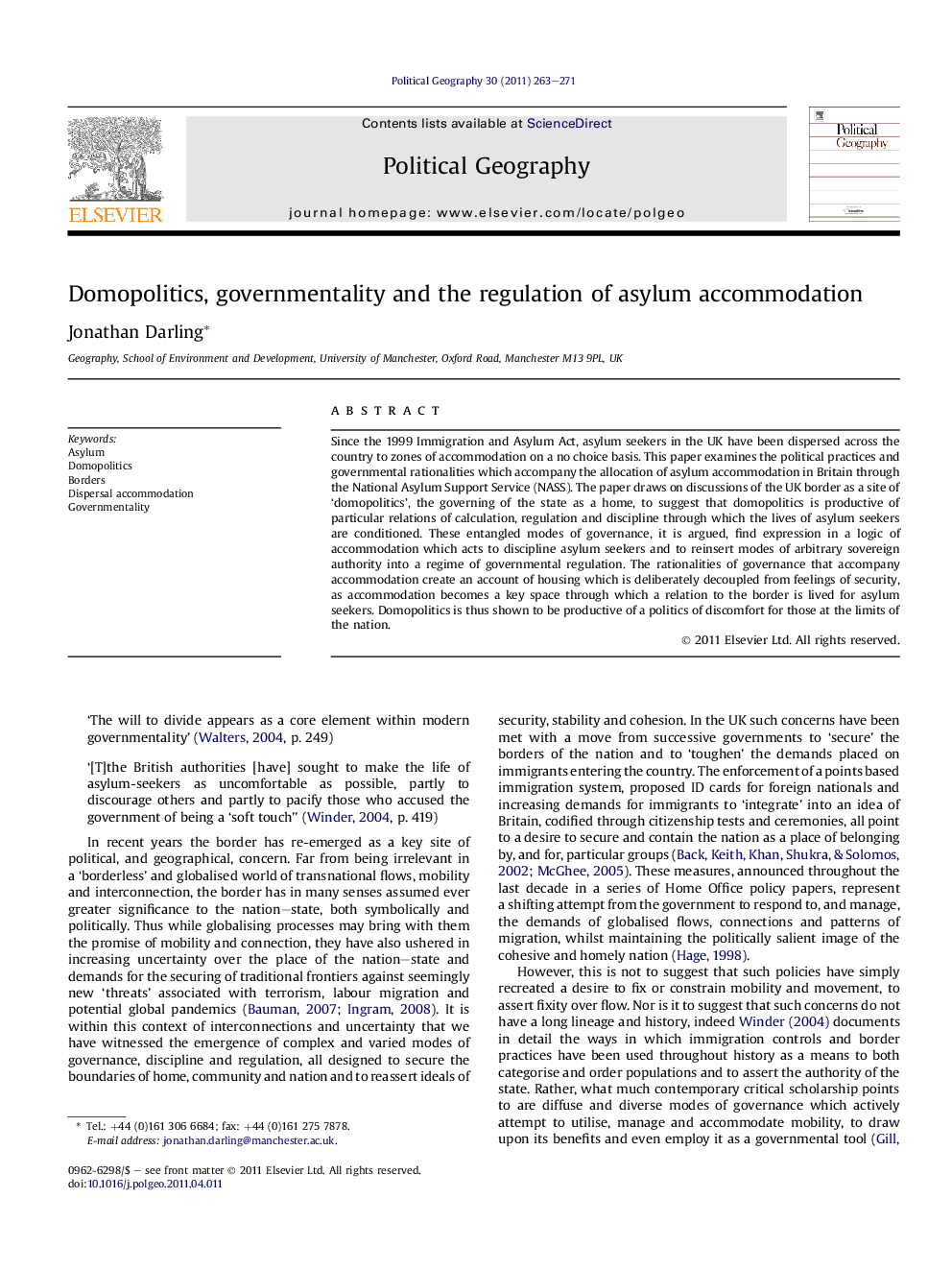| کد مقاله | کد نشریه | سال انتشار | مقاله انگلیسی | نسخه تمام متن |
|---|---|---|---|---|
| 1062119 | 947936 | 2011 | 9 صفحه PDF | دانلود رایگان |

Since the 1999 Immigration and Asylum Act, asylum seekers in the UK have been dispersed across the country to zones of accommodation on a no choice basis. This paper examines the political practices and governmental rationalities which accompany the allocation of asylum accommodation in Britain through the National Asylum Support Service (NASS). The paper draws on discussions of the UK border as a site of ‘domopolitics’, the governing of the state as a home, to suggest that domopolitics is productive of particular relations of calculation, regulation and discipline through which the lives of asylum seekers are conditioned. These entangled modes of governance, it is argued, find expression in a logic of accommodation which acts to discipline asylum seekers and to reinsert modes of arbitrary sovereign authority into a regime of governmental regulation. The rationalities of governance that accompany accommodation create an account of housing which is deliberately decoupled from feelings of security, as accommodation becomes a key space through which a relation to the border is lived for asylum seekers. Domopolitics is thus shown to be productive of a politics of discomfort for those at the limits of the nation.
► The domopolitics of asylum combines elements of security, sorting and discipline.
► Domopolitics demands practices of asylum accommodation and discomfort.
► Through the regulation of accommodation border practices emerge in everyday life.
► Accommodation is tied to the affective discomfort and marginality of asylum seekers.
Journal: Political Geography - Volume 30, Issue 5, June 2011, Pages 263–271